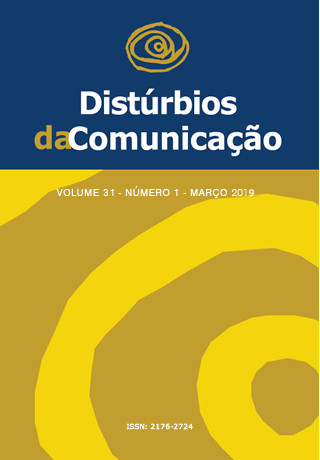Use of modulated frequency system by hearing impaired school children
DOI:
https://doi.org/10.23925/2176-2724.2019v31i1p12-21Keywords:
Hearing aids, Hearing impairment, Inclusion, Deafness.Abstract
Introduction: inclusion along with accessibility and new technologies are aspects that are interconnected from the perspective of intervention with the hearing impaired. As an accessibility strategy, there is the system of modulation frequency (FM), which enables the perception of the targeted sounds. Objective: verify the monitoring of FM system users. Method: this is a descriptive, quantitative and crosssectional study. A differentiated questionnaire was applied for each segment involved with FM: students, teachers and legal guardians. The data were stored in Excel spreadsheet and a descriptive analysis was carried out, using percentage tables and graphs. Results: the use of the FM system provided accessibility in relation to communication between students with hearing impairment, parents and teachers; 77.77% of the students showed improvement in school performance after use. In addition, 72.22% said they listened well to the teacher. With regard to parents, 78.94% reported improvement in their child’s school performance. It was also evidenced the teachers’ lack of preparation in relation to inclusive education and the adaptation of methodologies directed to the educational demand. In which, 51.51% reported that they do not feel prepared to meet this demand. Conclusion: the use of the FM System demonstrated benefits within the school context, allowing the improvement of the perception of speech in noisy environments according to the conceptions of the groups. Educational institutions need to take actions directed to inclusive practices in the area of auditory accessibility, in order to promote teacher training.Downloads
Download data is not yet available.
Downloads
Published
2019-03-29
Issue
Section
Artigos
License
Copyright (c) 2019 Dayane Silva de Carvalho, Cristiane Monteiro Pedruzzi

This work is licensed under a Creative Commons Attribution 4.0 International License.









